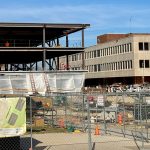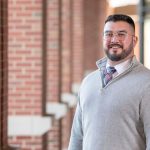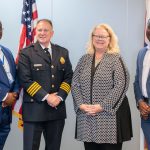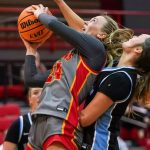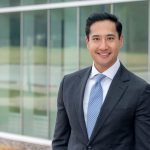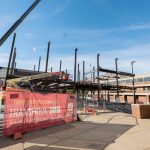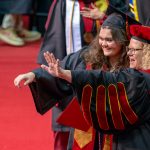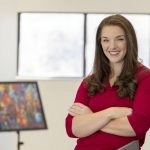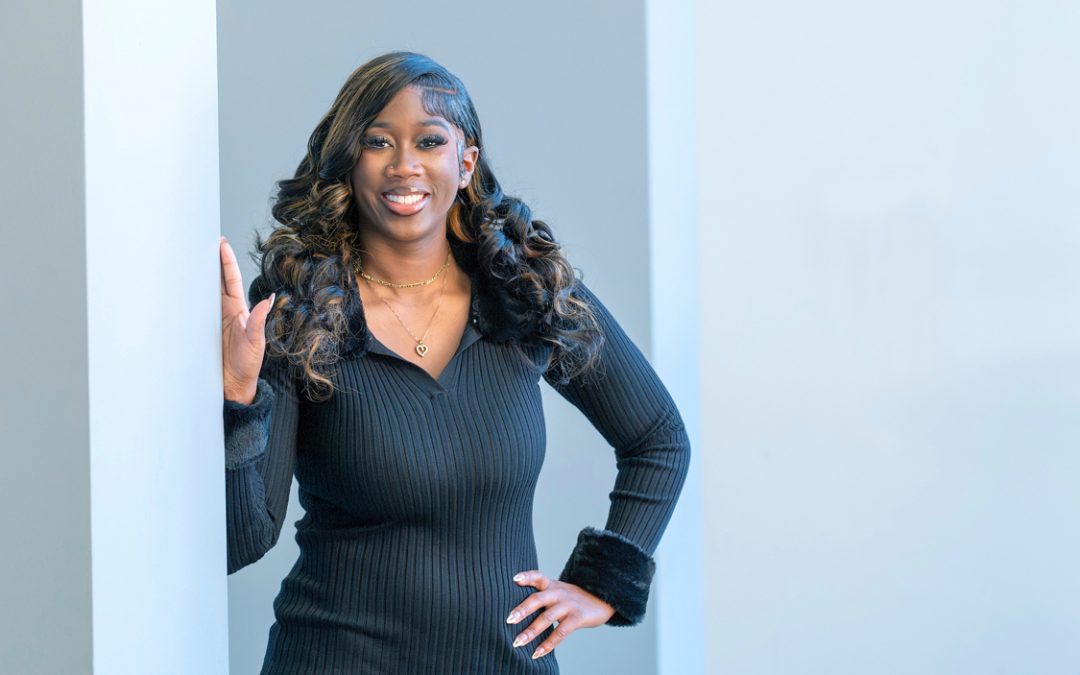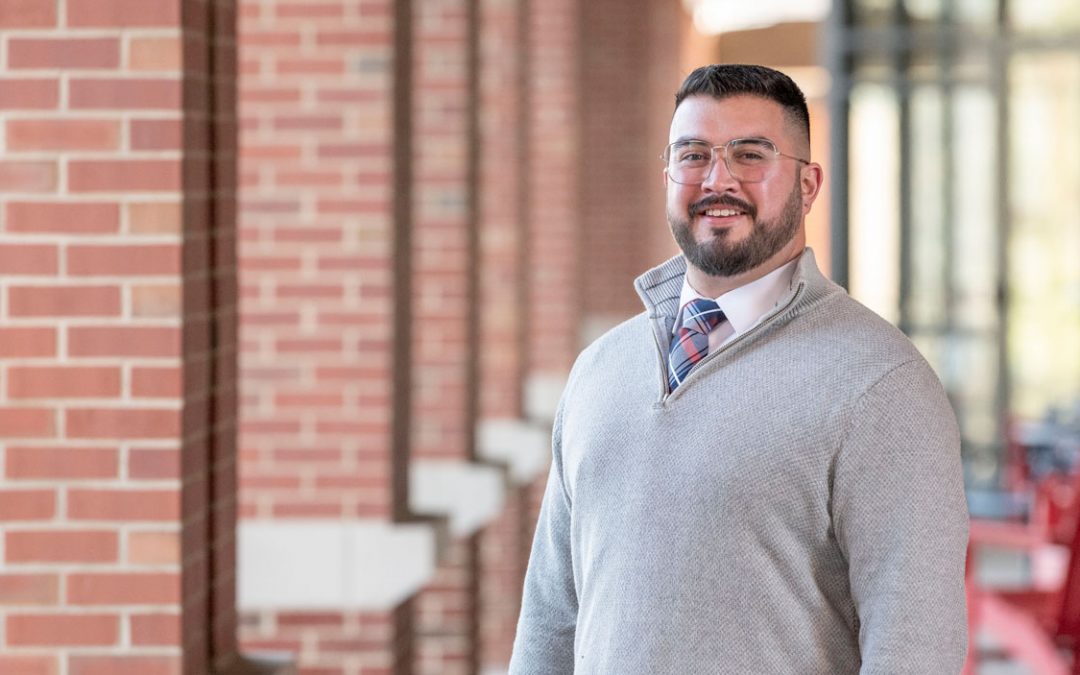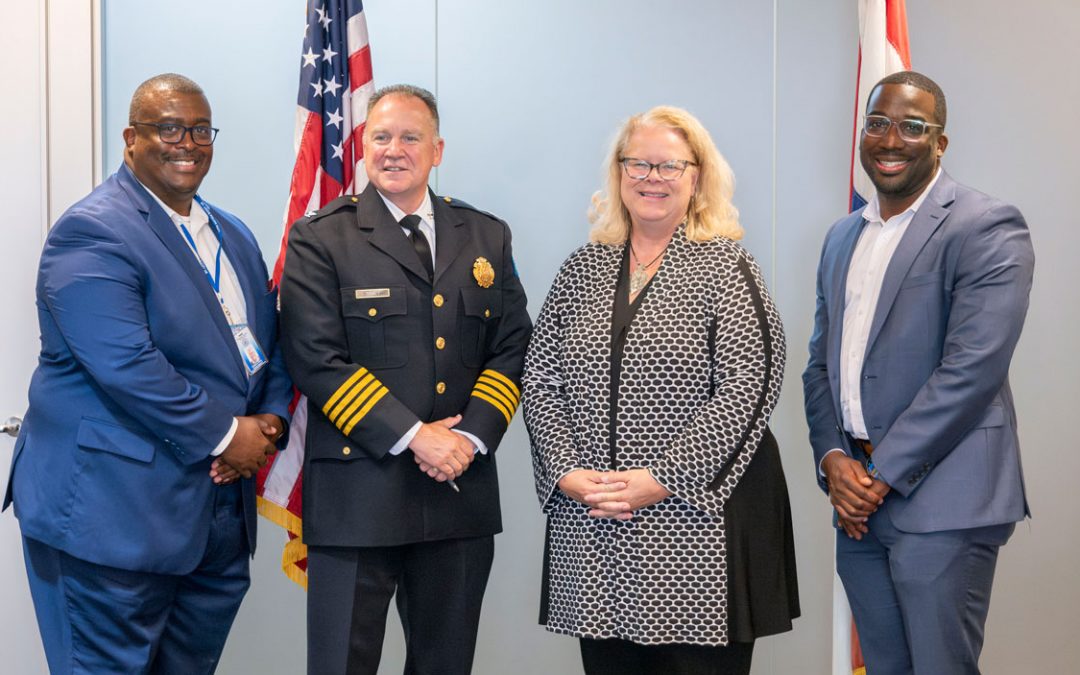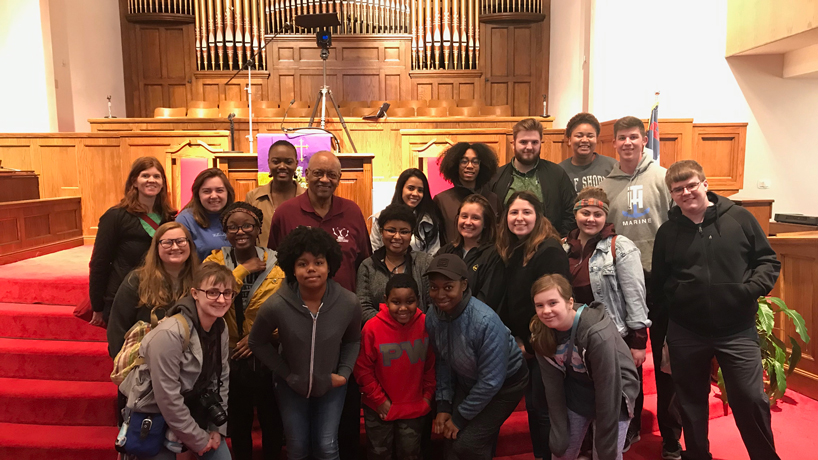
Participants in the inaugural UMSL Civil Rights Tour met with Armond Bragg at the 16th Street Baptist Church in Birmingham, Alabama. Bragg dropped his sister off at the church the morning of Sept. 15, 1963. Later that day, a bomb planted by Ku Klux Klansmen killed four African American girls. (Photos courtesy of Courtney McDermott)
Lucy Grimshaw has always considered Martin Luther King Jr. a hero.
The University of Missouri–St. Louis freshman has read about his life, listened to his speeches and tried to model herself after his example of courage, compassion and grace. Through the inaugural UMSL Civil Rights Tour, she got the opportunity to further her connection with the famed freedom fighter.
She got to cross the Edmund Pettus Bridge in Selma, Alabama, where King helped lead voting rights demonstrations. She got to see the door of the jail cell in which he was held in Birmingham, Alabama, that served as the eponymous venue for his “Letter from a Birmingham Jail” and stand behind the pulpit at the Dexter Avenue King Memorial Baptist Church in Montgomery, Alabama, from which he delivered his “How Long, Not Long” speech.
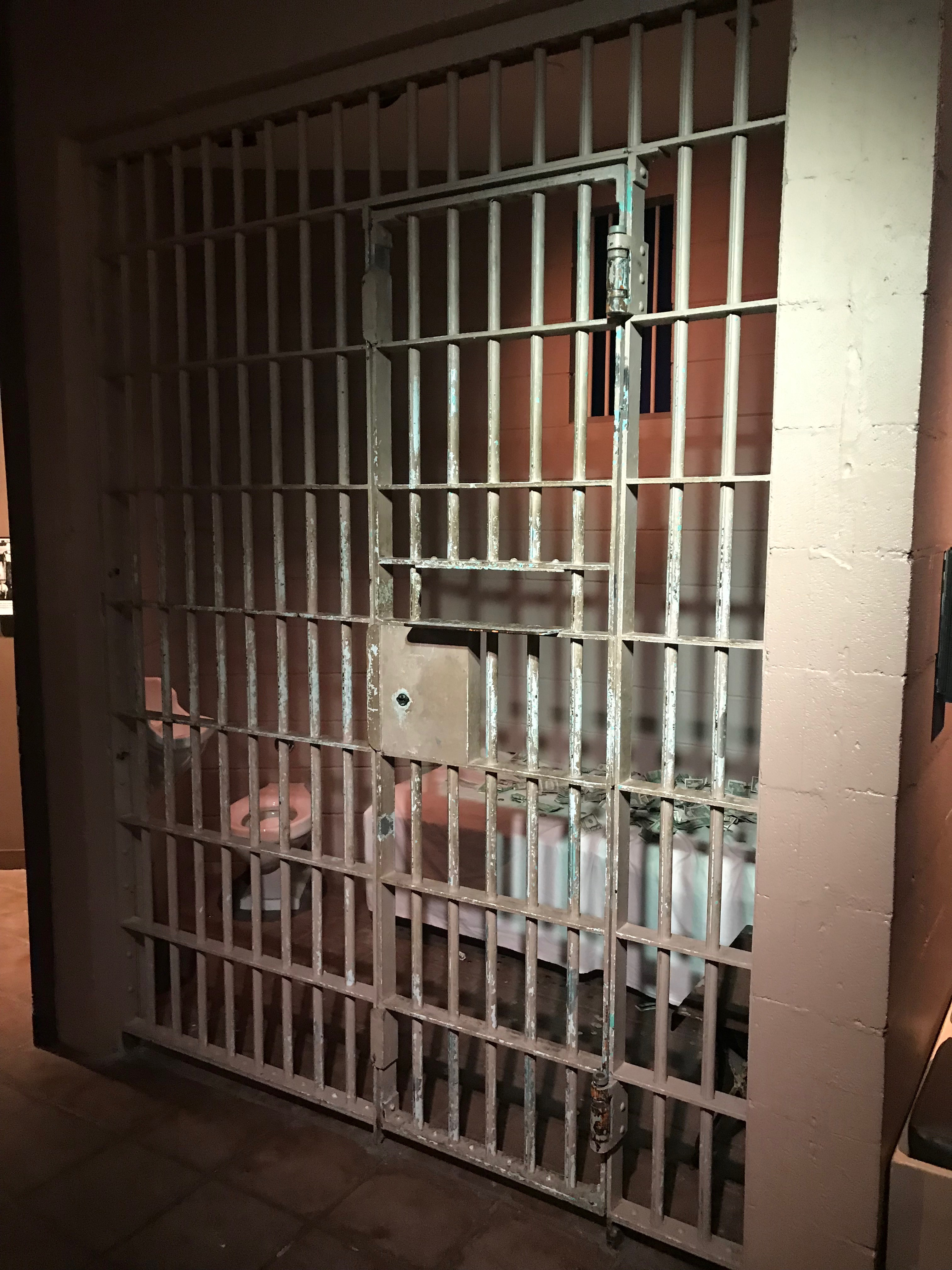
At the Birmingham Civil Rights Institute, students got to see a recreation of the cell from which Martin Luther King Jr. wrote his famous “Letter from a Birmingham Jail,” complete with the original cell door.
She got to gaze out a window at the National Civil Rights Museum at the Lorraine Motel in Memphis, Tennessee, and mentally re-enact the flight of the bullet fired from the boarding house across the street that ended King’s life on April 4, 1968.
“It was so surreal,” Grimshaw said. “That was where a dream died, but we can keep it and maintain it.”
She was one of 20 UMSL students who took part in the Civil Rights Tour over spring break. It was a three-day, 10-site crash course through Memphis, Birmingham, Selma and Montgomery that allowed participants to study the history of some of the most impactful moments of the 20th century and think about how their repercussions are still being felt today.
It involved almost 21 hours and 1,500 miles in a tour bus from March 25-28. All worth it.
“From this experience, I feel like I’m able to open up more to different groups of people, diverse groups of people, and be able to communicate better with them,” said sophomore Felesha Clarke, who went on the tour. “It’s important for us to be aware of society and governmental changes that are happening around us, and that we should take advantage of the rights we do have now and make changes for some form of betterment in society.”
Last January, Assistant Teaching Professor of Social Work Courtney McDermott came to Dan Gerth, then interim dean of the Pierre Laclede Honors College, wanting to make the trip into an intersession course. Gerth loved the idea, and the Honors College pitched in with some James Doyle Scholarship for the Study of Social Justice grants to help students out with the cost of the trip. The Gender Studies program also provided a grant to help with food costs.
McDermott and Assistant Professor of Social Work Sha-Lai Williams Woodson led the course, which required readings, documentary screenings, class discussions, group projects and reflection papers to go along with the trip.
“Most of the students on the trip have said they really need to commit to racial equity in our region and making this a better place for all people, which has been really powerful,” McDermott said. “That, of course, is what we were hoping they all would learn about the Civil Rights Movement – make the connections and see the parallels between then and what is happening now – but to really see them make this commitment to do and be better has been really powerful and great to see.”
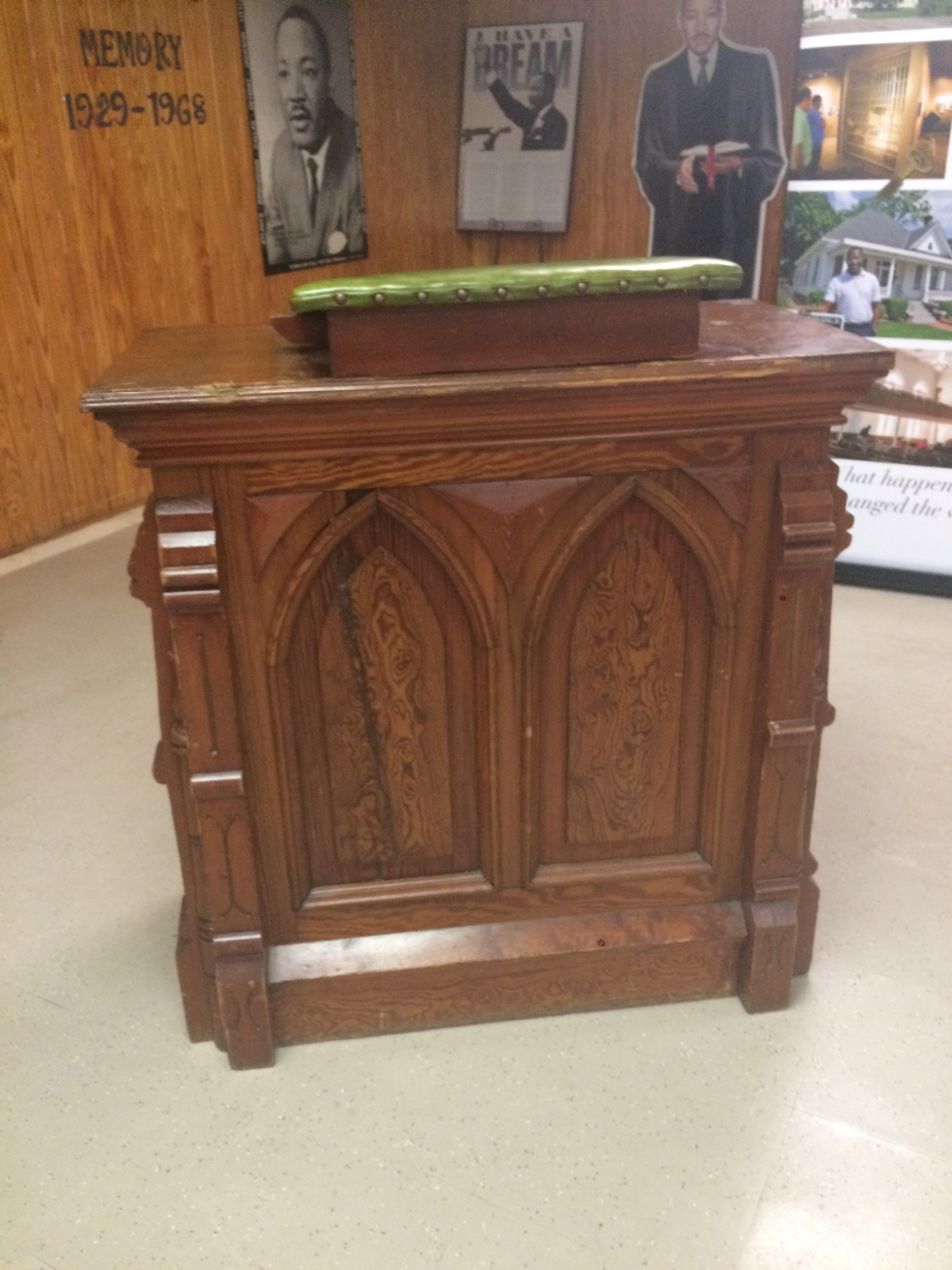
The pulpit from which Martin Luther King Jr. delivered his “How Long, Not Long” speech is still on display at the Dexter Avenue King Memorial Baptist Church in Montgomery, Alabama, where King served as pastor from 1954 to 1960.
Even with a tight schedule to keep, the students were in for a couple of surprises during the trip. They met Armond Bragg at the 16th Street Baptist Church in Birmingham. Bragg dropped his sister off at the church the morning of Sept. 15, 1963. Later that day, four African American girls were killed by a bomb placed by Ku Klux Klansmen.
At the Selma Interpretive Center, they met JoAnne Bland. By the time Bland was 11, in 1965, she had been arrested 13 times during demonstrations. She was at the Edmund Pettus Bridge for both “Bloody Sunday” – when state troopers beat a group of around 600 demonstrators marching for African American voting rights – and “Turnaround Tuesday,” when 2,500 demonstrators took to the bridge.
“If I can be a small part of a change, there were people who were doing it at 11, why can’t I do it now?” Grimshaw said. “Why can’t other people rise up and realize that we need to take our place and make a difference?”
McDermott and Woodson hope to offer the course again next year. In order to do so, they want to explore expanded funding opportunities so that the students don’t have to shoulder so much of the financial burden for the trip.
“We had students who were working extra hours to come on the trip. Most students’ parents didn’t just write them a check,” McDermott said. “There were sacrifices they had to make to come on the trip, and we would like to make it a lot easier for them, particularly seeing what the outcomes have been.”
Grimshaw certainly wants to go again. She wishes everyone could.
“It helped me realize there are people in the world who want to make a difference, who counterbalance all the people who are awful, hateful and spiteful,” Grimshaw said. “There are good people in the world, and we have to rally around them.”
You can see images from the UMSL Civil Rights Tour on Twitter and Instagram.



